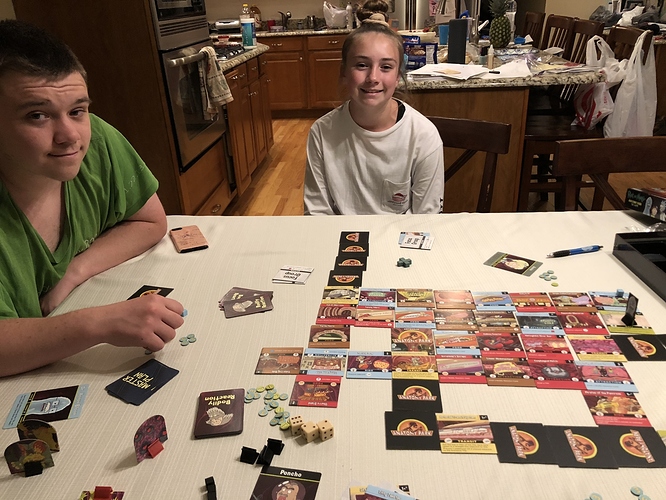The comparison to Cosmic Encounter is a great insight! How many players were in your game with Fox clan? That is an important part of any balance discussion about the game I have found. Fox seem significantly stronger to me at lower player counts, where it is much harder for other players to contest them in each province. I think if you are playing with 3 players, and one player is new, giving them Fox clan is the way to go.
I have only played two games with Dynasty Invasion extra clans, but Sun and Moon seem to really depend on whether you have both new clans in the game or not. If you have both, the two players will compete for the additional lucky gods. If you only have Sun or Moon in there, one player has a powerful monopoly on the god-bank. I think this works better if the solo clan is Sun (as their ability is a bit weaker). But it is a LOT to keep track of on top of Kami unbound and any additional monsters that have been added…
Thanks for your Kami Unbound comment also – I will try to play more with that expansion alone to see if I can get a better handle on it. (Raijin in particular was quite frustrating the first time around, as he can negate all other figures).
The game reminds me a lot of Clockwork Wars (another great area control game that Tom Chick has recommended), except the swinginess comes from open-information season cards, instead of hidden-information espionage cards and hidden movement.
